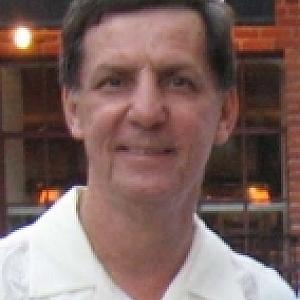
Frank Sotomayor
National Health Journalism Fellow, 2010

National Health Journalism Fellow, 2010
I'm a freelance writer and editor and was selected for the 2010 National Health Journalism Fellowship program. I'm also a Senior Fellow at the Institute for Justice and Journalism (IJJ) and an adjunct faculty member at USC Annenberg. I was an L.A. Times editor for 30 years. As onetime environment editor, I directed coverage ranging from the health effects of air pollution, pesticides and lead in water to radon and cancer clusters.
I was co-editor and a writer on a Times series, "Latinos in Southern California," that won the 1984 Pulitzer Prize for Public Service. I was founding editor of Nuestro Tiempo, the Times' English-Spanish section, in which we paid a great deal of attention to health issues concerning Latinos.
I've been active in efforts to increase diversity in the news media. I was a co-founder of the Maynard Institute for Journalism Education, the California Chicano News Media Association and NAHJ. Publications include "Para los Niños, Improving Education for Mexican Americans" and co-editing "Frank del Olmo: Commentaries on His Times."
I majored in journalism at the University of Arizona, got a master's in communication from Stanford and studied at Harvard as a Nieman Fellow. I also worked at the Arizona Daily Star, Philadelphia Inquirer and Pacific Stars and Stripes.
<p>During my reporting on organ donation for my fellowship project, one source’s quote stood out. “I’m a living example that organ donation works,” Vicky Mai Nguyen told me. She’s a 26-year-old woman who’s in good health and thriving. Had it not been for a liver transplant, she likely would never have made it to 2.</p>
<p>As the list of patients in need of organ transplants continues to grow, Vietnamese communities in Southern California are urged to consider becoming organ donors.</p>
<p>This piece focused on Los Angeles’ ethnic communities: How they are key to increasing organ donations and, on the other side, how they benefit from these life-saving procedures. I wanted to establish a human connection right away — to show how a donated organ can help an individual who is very ill, almost to the point of dying. Through my reporting, I’ve also learned that donation helps the donor family by providing consolation for the loss. As a number of donor families have told me: “My loved one lives on, helping another person to stay alive.” With the help of OneLegacy, the organ donation agency for the L.A. area, I made contact with a donor’s parents and the recipient of a donated kidney that brought him back to health. That gave me my lead. Then, I described how OneLegacy is working to raise awareness about organ donation in the area’s three primary ethnic communities: Latino, Asian and African American. Together, these groups make up more than 60% of the population served by OneLegacy in Southern California. With the help of OPTN media specialists, I determined that these groups also make up about the same proportion of organ donors and organ recipients. The piece was posted on LA Beez, an online collaboration of ethnic media outlets. It was a pleasure to work with editor Jerry Sullivan and website specialist Kevin Chan.</p>
<p>Dozens of organ and tissue donors will be honored on a float sponsored by Donate Life America in the 2011 Tournament of Roses Parade.</p>
<p>This feature story describes how the effort to better inform Latinos about organ donation is being carried out.</p>
<p>United by a common mission, they work to raise awareness about saving people's lives through a selfless act: the donation of human organs. And, true to their name in Spanish, they have become the ambassadors for organ and tissue donation to the Latino community of Los Angeles.</p>
<p>Soaring rates for obesity, diabetes and hypertension are fueling a serious gap between the need for kidney transplants and the availability of those organs, impacting Latinos and other Los Angeles patients who are in renal failure.</p>
<p>Soaring rates for obesity, diabetes and hypertension are fueling a serious gap between the need for kidney transplants and the availability of those organs, impacting Latinos and other Los Angeles patients who are in renal failure.</p>
<p>A wide disparity exists between the large number of people on transplant lists, waiting for vital organs, such as a kidney, liver, heart, lung or pancreas, and the limited availability of those organs. Why is that? And can anything be done to close the imbalance? For my project in the National Health Journalism Fellowship program, I'm delving into the subject of organ donation. My geographic focus will be the Greater Los Angeles region. Given the demographic diversity of this region, I will concentrate on organ donation among Latinos, African Americans, Asians and Native Americans.